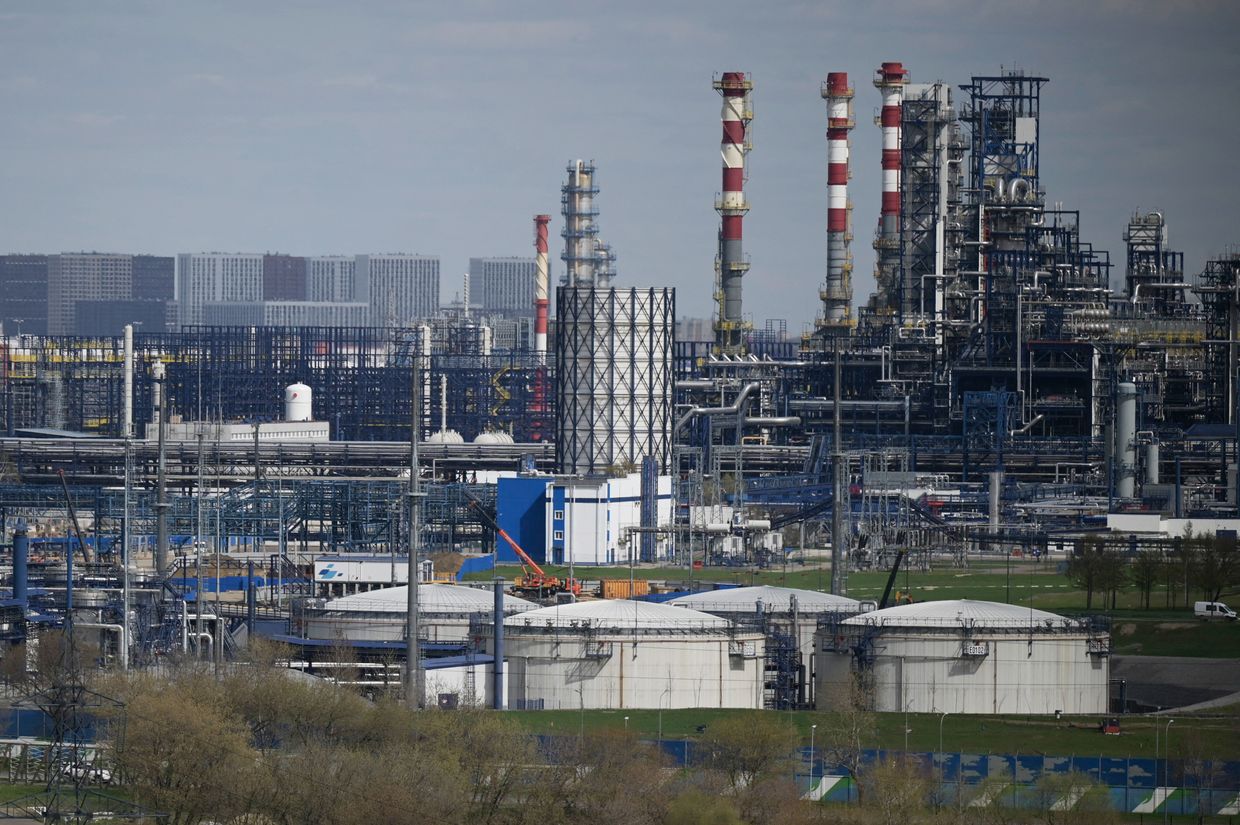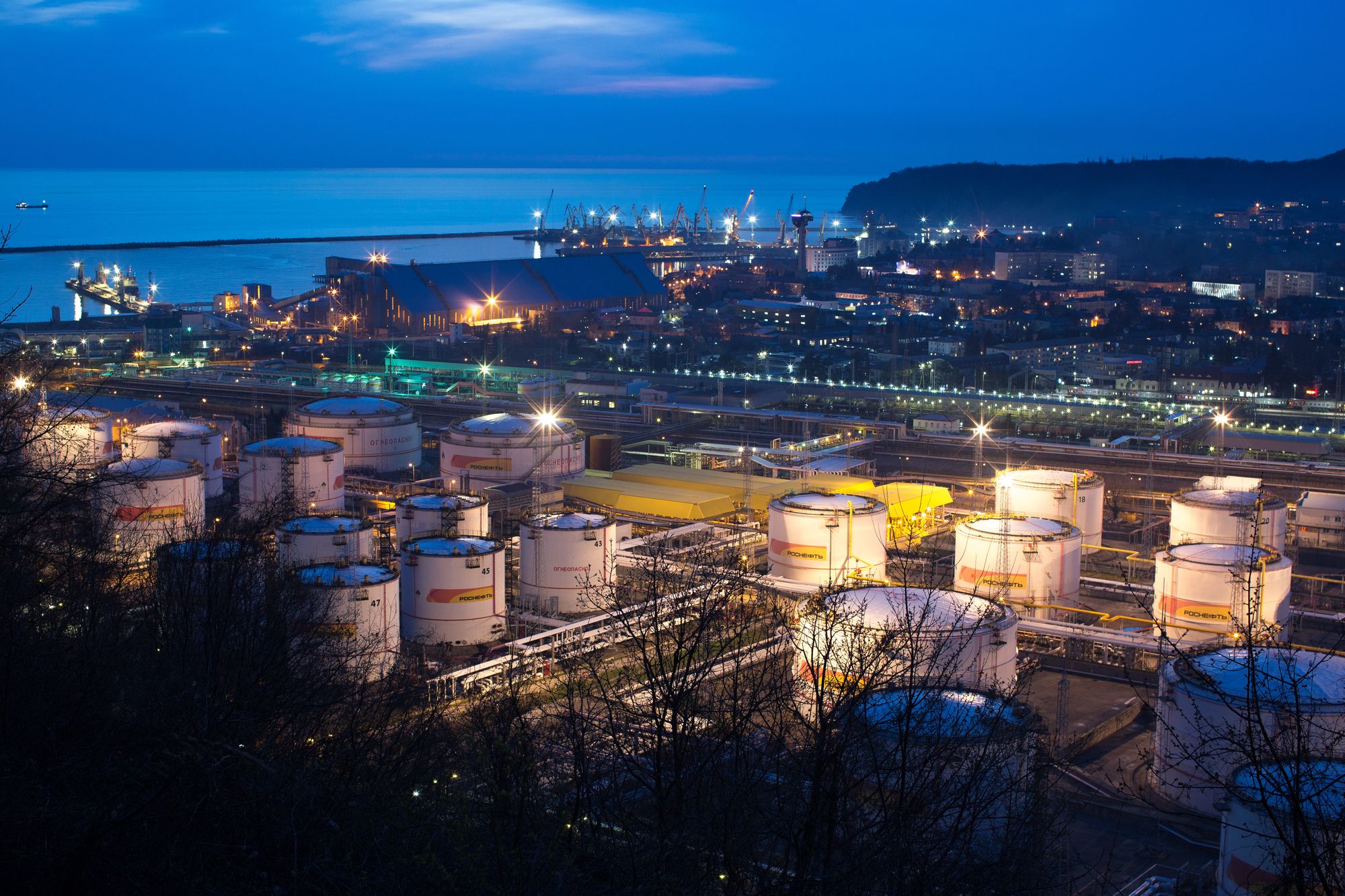Two years on, the Nord Stream explosion remains a mystery, deepening European divide
Despite being blown up, the underwater Baltic Sea pipelines aimed at boosting European dependency on Russian gas continue to sow cracks between western allies on both sides of the Atlantic Ocean

Danish Defense shows the gas leaking at Nord Stream 2 seen from the Danish F-16 interceptor on Bornholm, Denmark on Sep. 27, 2022. (Danish Defence Handout / Anadolu Agency via Getty Images)
Two years after a series of explosions tore apart Russia’s controversial Nord Stream pipelines, the investigation has largely remained a mystery full of accusations that have exposed political fault lines across Europe.
Stretching from northwestern Russia under the Baltic Sea to Germany’s coast, the pipelines completed before Russia’s full-scale invasion are a long-standing project that aimed to boost Russian gas flow into Western Europe, symbolic of the old energy pact between Moscow and Berlin that now seems like a mistake.
The multifaceted investigation that followed the detonation and subsequent effective destruction of three out of four pipelines in September 2022 has essentially run on two separate tracks: the hard police work of determining who was responsible and the larger rethinking of the strategy to integrate Russia into the West via energy trade.
In practice, the two have become intertwined as competing camps have latched on to the continuing mystery of the explosion to pursue their own political agendas.
What we know about the investigation
Soon after the explosion, it was quickly determined that it was no accident.
Due to the location of the pipelines in international waters, but also within Danish and Swedish maritime economic zones, as well as the involvement of Russia and Germany as the source and end-point of the pipelines, the investigation inherently involved numerous countries.
Initially, there was speculation that Russia was responsible for the explosions. Gerhard Schindler, the former head of Germany’s national intelligence agency, said days after the underwater explosions that “only Russia can really be considered for this, especially since it stands to gain the most from this act of sabotage.” In the lead-up to Russia’s full-blown war against Ukraine, Germany bowed to pressure and halted the Nord Stream 2 project.
"Only Russia can really be considered for this, especially since it stands to gain the most from this act of sabotage."
Schindler and others in Germany and Western Europe argued at the time that Russia may have destroyed its own pipelines in an act of revenge that would raise gas prices in an attempt to show Europeans the cost of severing economic ties with Russia.
At the same time, Russia cast a wide net of accusations, claiming that the U.S., the U.K., or others were responsible.
The alleged involvement of the U.S. later was echoed by conspiracy theorists like Seymour Hersh, who claimed, citing unnamed sources, that it was directly ordered by President Joe Biden.

In March 2023, the New York Times and other media outlets began sharing intelligence that indicated Ukraine might have been responsible. While Ukrainian officials had openly campaigned against the pipelines and referred to them as a security threat that bypassed Ukrainian gas transit pipelines by making European markets more dependent on Russian fuel supplies, they also denied they had anything to do with the attack.
U.S. officials said at the time there was no evidence that President Volodymyr Zelensky or anyone in his top circle was involved — or that the attackers operated on the orders of the Ukrainian government.
The Danish and Swedish investigations concluded in early 2024 without identifying any suspects.
The Wall Street Journal wrote in January 2024, citing unnamed German investigators, that the attackers may have operated from Poland, and further claimed that the Polish government was “hindering” the probe.
But intelligence leaks and speculation continued, with an increasing number of fingers being pointed at Ukraine.
The most concrete accusations came in August 2024, when the Wall Street Journal (WSJ) wrote, citing unnamed sources, that the explosion was ordered by then Commander-in-Chief of the Ukrainian Armed Forces Valerii Zaluzhnyi and carried out by a team of Ukrainian saboteurs. The WSJ claimed that Zelensky had initially approved the attack, but then changed his mind and asked Zaluzhnyi to call it off.
Separate stories by German media outlets that said that Berlin had issued an arrest warrant for a Ukrainian diving instructor — coincidentally identified as Volodymyr Z. — only deepened the sense of Kyiv’s involvement.
Later, Poland said it had received the arrest warrant but that Volodymyr Z had already left the country.
Nonetheless, Zaluzhnyi dismissed the allegations as a “provocation,” and Kyiv continued to deny that it was behind the explosion.
As of the time of this publication, there is no concrete answer, but that has not stopped the blame game, which has become imbued with deeper political implications.
Grab-bag opportunism
Across the board, various officials and commentators have used the Nord Stream explosion as a political weapon, tying their accusations to underlying positions on Russia’s full-scale war on Ukraine.
Those already opposed to Western support for Ukraine have often cited Kyiv’s alleged involvement in the attack as yet another reason to end or at least cut aid for the country.
In an interview with far-right commentator Tucker Carlson in April 2023, Republican presidential nominee Donald Trump insinuated that the U.S. was responsible, echoing past suggestions that it was either Washington — or Kyiv — but not Russia.

Trump’s comments on Nord Stream fit in a larger pattern of invoking Ukraine to attack his then-political opponent, Biden.
The former president also claimed that he had “stopped” the pipeline project while in his office and alleged that it was under Biden that it flourished.
For Trump and others who repeatedly warn that U.S. support for Ukraine would lead to escalation with Russia, the implication of Ukrainian involvement in the explosion is yet another example.
Just days after the explosion was first reported, Trump shared old comments from Biden, in which he said, “If Russia invades…then there will no longer be a Nord Stream 2. We will put a stop to it.”
Trump added: “Wow, what a statement. World War III, anyone?”
Nord Stream and the eastward shift of the EU’s power centers
Among European countries that support Ukraine, the pipeline explosion has also been used as a rhetorical tool, but for another purpose — to castigate Germany for leading the charge in cementing the EU’s dependence on Russian energy in the first place.
Polish Prime Minister Donald Tusk made waves in August 2024 when he responded to the suggestion of Warsaw’s involvement by saying, “To all the initiators and patrons of Nord Stream 1 and Nord Stream 2. The only thing you should do today about it is apologize and keep quiet.”
While he did not mention anyone by name, it was clear he was referring to Germany, the main “patron” of the project.
Czech President Petr Pavel went even further, saying that even if Ukraine was behind the attack, the pipeline would have been “a legitimate goal” for Kyiv to try and cut energy revenues flowing back to Moscow.
German allegations that Poland may have been involved were “inspired by Moscow" with the aim of destabilizing NATO, said Krzysztof Gawkowski, a deputy Polish prime minister and the minister of digital affairs.
Critics of the pipeline, which included many in central and eastern Europe, had long argued that Germany was misguided in going forward with the project.

Beyond eliminating potential profits that an overland pipeline could give Poland and other countries, Nord Stream deepened the EU’s dependence on Russian energy and raised fears long before the full-scale war that Moscow would use such reliance as a tool to exert pressure.
When Russia did just that after February 2022 — threatening to cut off energy supplies to the EU in response to its support for Ukraine, there was a sense of vindication from those who had long warned of the threat of energy dependence.
The bloc’s response to Russia’s full-scale invasion, in which Poland, Czechia, the Baltic states, and other countries previously thought to be on the periphery of the center of power in Brussels have emerged to be most committed to its defense from Russia, have fueled the argument that Germany’s policy was a failure.












